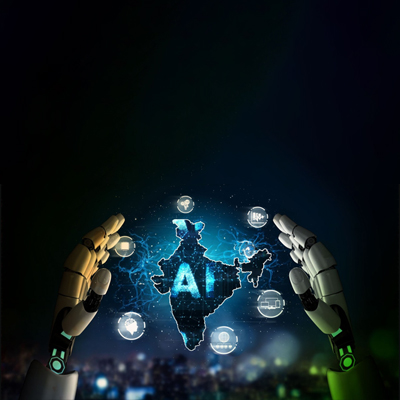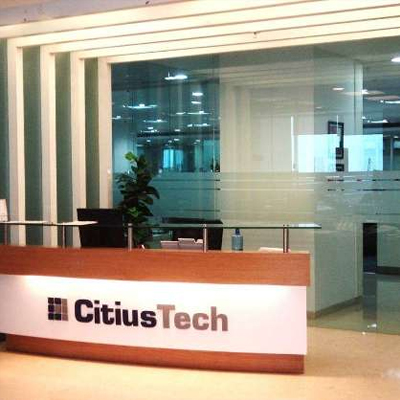Digital Upskilling Health Workforce for the Digital Future
1.jpg)
The healthcare sector is currently experiencing a rapid evolution driven by the seamless integration of advanced or emerging technologies. This progression necessitates that healthcare professionals equip themselves with essential digital competencies. This article underscores the critical importance of digital upskilling within the healthcare domain and elucidates the manifold benefits it offers in enhancing patient care outcomes.
By immersing themselves in digital upskilling initiatives, healthcare practitioners can effectively leverage a spectrum of cutting-edge technologies, including chatbots, machine learning algorithms, customised applications, and the Internet of Medical Things (IoMT). This proactive approach not only enables professionals to adapt to the digital era but also empowers them to redefine standards of patient care.
Digital upskilling transcends being just a trend; it represents a fundamental pillar of modern healthcare excellence. Through this process, healthcare professionals can meticulously refine care delivery processes, optimise operational efficiency, and elevate patient satisfaction levels. Ultimately, embracing digital upskilling fosters a healthcare landscape where every interaction is optimised to achieve unparalleled outcomes.
Redefining Learning in Healthcare
As the vanguard of innovation, the healthcare sector is undergoing a profound transformation in its educational landscape. The seismic impact of the COVID-19 pandemic highlighted the pressing need for agile and robust healthcare systems, necessitating a workforce equipped with up-to-the-minute knowledge and skills. Traditional educational paradigms are yielding ground to dynamic, technology-infused methodologies tailored to meet the ever-changing demands of healthcare professionals. This transition transcends mere technological adaptation; it's about safeguarding the paramount principles of patient care and safety.
As of 2024, India's healthcare workforce has exceeded 6 million, marking the beginning of a significant expansion. Projections indicate a staggering growth trajectory, with over 6.3 million additional jobs anticipated by 2030. This translates to a remarkable workforce expansion of over 100% within six years, accompanied by a compounded annual growth rate (CAGR) exceeding 12%. By the end of the decade, the sector is expected to have an investment potential of US$630 billion, reflecting the immense opportunities and growth prospects in India's healthcare industry.
Bridging the Skill Gap for Frontline Health Workers
At the forefront of patient care delivery, frontline health workers serve as the backbone of the healthcare system. Equipping them with proficiency in digital tools, including chatbots, machine learning algorithms, and IoMT devices, is paramount. Such skills enable them to engage effectively with patients, make informed decisions, and facilitate remote monitoring. The acquisition of these digital competencies not only empowers frontline workers but also elevates the quality of care provided and enhances patient satisfaction levels.
Facilitating Digital Transformation Through Leadership
In the healthcare space, senior-level executives and support staff hold pivotal roles in driving digital transformation. It's imperative for them to not only adopt but also champion digital skills. This entails seamlessly embedding technology into the organisation's ethos, infrastructure, and operational workflows. Armed with digital proficiencies, they can effectively tackle cybersecurity challenges, ensure the secure handling of data, foster a culture of innovation, and spearhead the development of tech-driven solutions that yield benefits for both patients and healthcare professionals alike.
Expanding Access Through Digital Platforms
Innovative digital platforms are reshaping the landscape of healthcare education delivery. E-learning, webinars, and online courses are leading the charge, offering unprecedented flexibility for healthcare professionals to pursue learning on their terms, at their own pace, and with convenience. What sets these platforms apart is their ability to transcend geographical limitations, ensuring that quality education is within reach for a wider audience. This democratisation of knowledge marks a pivotal shift, especially for regions with limited access to traditional educational avenues. Embracing digital platforms signifies a commitment to inclusivity in healthcare education, catering to diverse learning needs and styles while breaking down barriers to knowledge acquisition.
Embracing Digital Training Methods
In addressing the skill gap, healthcare professionals must transition from conventional training paradigms to digital alternatives. Leveraging digital platforms to simulate real-world scenarios offers a transformative approach to learning, providing practitioners with immersive and practical experiences. This immersive methodology cultivates digital fluency, fosters familiarity with a diverse array of applications and technologies, and enhances adaptability to dynamic changes within healthcare institutions. By embracing digital training methods, professionals ensure sustained adherence to evolving practices and optimise the long-term benefits of upskilling initiatives.
AI and Automation: Revolutionising Learning Experiences
Artificial Intelligence (AI) and automation are emerging as transformative forces in the education space. Through AI-driven simulations and virtual reality environments, learners are immersed in realistic scenarios, enriching their training experiences. These cutting-edge technologies facilitate the replication of intricate medical situations, providing a safe space for hands-on practice and experimentation. Complementing this, automation is revolutionising the administrative facets of education, liberating educators from mundane tasks and allowing them to dedicate more time to teaching. The integration of AI and automation isn't merely improving educational standards; it's fundamentally reshaping the very essence of learning itself.
Blended Learning: Harmonising Traditional and Digital Education
The adoption of blended learning methodologies is swiftly gaining momentum in healthcare education. This innovative approach seamlessly intertwines online digital media with traditional classroom techniques, offering a comprehensive educational experience. By amalgamating the flexibility of online learning with the invaluable personal interaction and tactile learning of in-person training, blended learning presents a harmonious synthesis. Particularly in healthcare, where practical skills and interpersonal dynamics are paramount, this hybrid model proves exceptionally effective. Furthermore, blended learning accommodates diverse learning styles, tailoring education to individual needs and thereby enhancing its overall efficacy and impact.
Preparing for a Dynamic Future in Healthcare Education
As the healthcare landscape undergoes continuous evolution, the education of healthcare professionals must also adapt in kind. The future of healthcare education hinges upon its ability to flexibly respond to shifting technologies and evolving patient demands. Embracing digital upskilling isn't merely a matter of staying relevant; it's about proactively equipping oneself for the challenges that lie ahead. The healthcare sector must prioritise investments in digital education tools and platforms, ensuring that its workforce remains adept with the requisite knowledge and skills to deliver optimal care.
Championing Lifelong Learning in Healthcare
The trajectory of healthcare education is intimately intertwined with the progress of digital innovation. Embracing digital upskilling is imperative for healthcare professionals to uphold competency and responsiveness amidst the dynamic healthcare landscape. As we gaze into a future marked by increasingly intricate healthcare dilemmas, the significance of continuous learning and adaptability cannot be overstated. In this digital epoch, a steadfast dedication to lifelong learning emerges as the defining characteristic of adept and compassionate healthcare practitioners.
.png)







